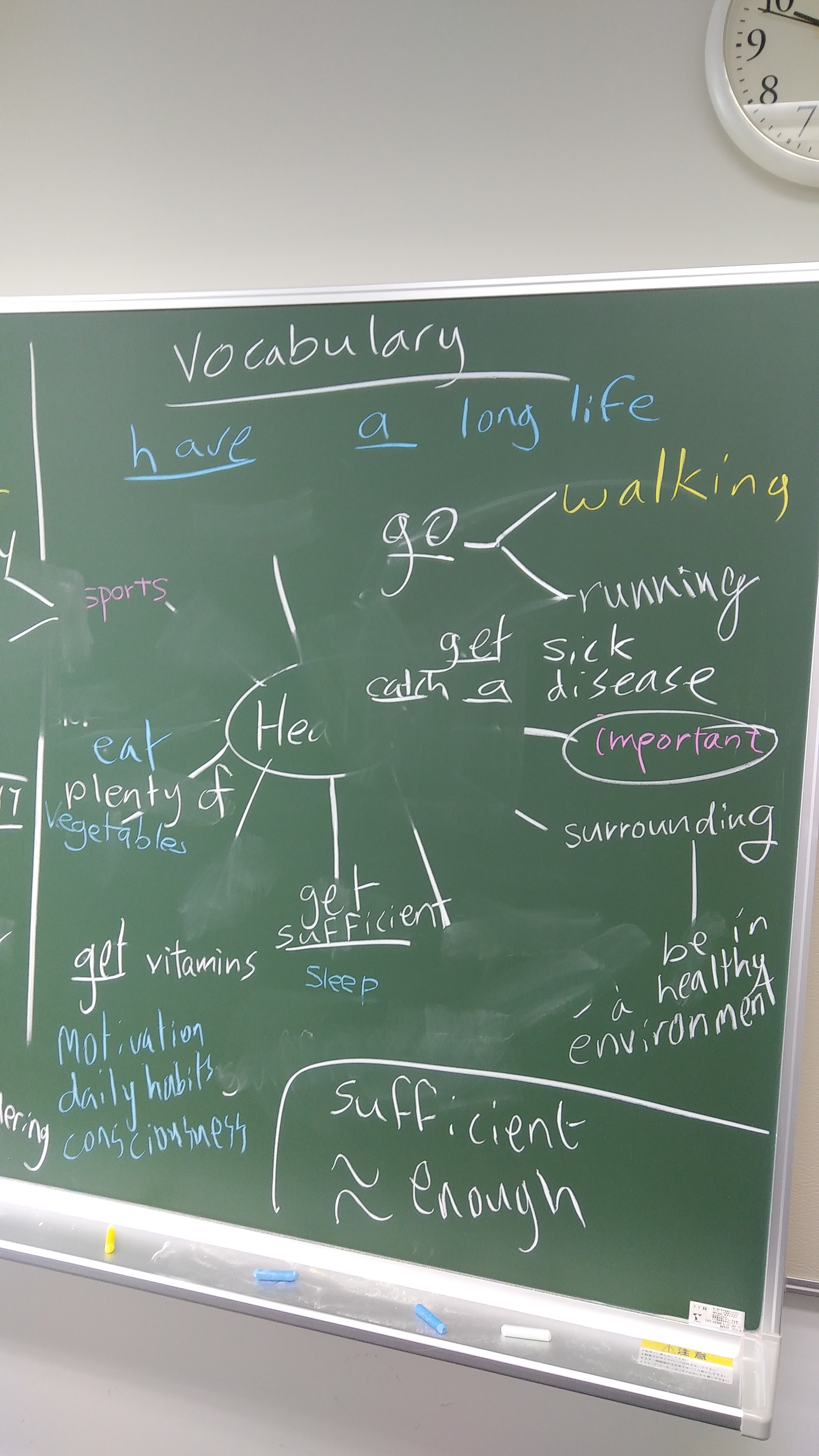
We’re almost near the end of the first term of my RPG classes and I’m already looking forward to the summative assessment. This is because the students at Ladies’ College of Suburban Tokyo are amazingly motivated for the most part and because the students at University of Outside Tokyo are repeaters who had to retake English Communication, and have shown a great deal of motivation, too, or at least the students who come regularly. My supervising professor at UOT has told me that if one third of the students pass, then that ought to be seen as a success. As it stands, we should be on for 4 definites, 5 probables and 3 unlikelies. At LCST, all the students should pass because everyone does the work, even if it is not always amazing it is always done.
I managed to ask some of the students at UOT the other day if they actually like the course as a game and they said yes. (Of course, they did. They won’t tell you it’s crap because you grade them, Marc.)
What negatives I did get were that one student said he didn’t like recording himself because it was a pain in the arse; however, this student also finds attendance a pain in the arse, too. My most regular attendee said recordings were difficult to manage. This is why I told him to make sure he kept a copy and also sent a copy to me.
Anyway, long story short: still loving it, waiting to see portfolios, deal with the recordings.
I am also giving a workshop on this at JALT Saitama’s Nakasendo conference on Sunday. I have presented before but never run a workshop for more than six teachers at once before. If you read this say hello!
Read Here be (Dungeons and) Dragons previous ‘chapters’: 1, 2, 3, 4, 5, 6, 7
Month: June 2017
Toward a Sustainable use of Technology in the Language Classroom
Ooh, 21st Century Skills. Apparently critical thinking is one of these but it constantly exasperates me when I see uncritical praise of EdTech in (English) language teaching. Instead of jumping on the new thing, how about some consideration of the following points.
Web applications should involve minimal and preferably no sign-up or tracking.
It should be a personal choice how far one wishes to be tracked and data-mined by third parties. When teachers use services that require sign-up or login using social media we are effectively coercing students to surrender their privacy. If we require use of Facebook logins (and not everyone has one) we are requiring students to be tracked on their computers. If we require Facebook logins on a phone, we require tracking and have given the rights to Facebook to record students by audio or camera without notice (see Facebook terms and conditions, privacy policy if concerned/you don’t believe me).
Sign-ups that require login for monitoring student progress are fine, and students should not feel compelled to unconditionally share this information with others, including teachers. The same liberty as the choice to remain silent in lessons should be extended to use of internet-based services.
This also means that having students upload to YouTube, Instagram, etc. be limited. If uploads are required, an institutional login should be used, although this is imperfect and a private server would be better. This requires greater internet/computing abilities than many have, though it is possible to learn such skills in a weekend. Is it possible for students to gain such time to be critical of internet privacy issues.
Technology should be controlled by the user, not the vendor.
Students should know whether content created using software belongs to them or the vendor. They should know whether the vendor has access to their data, including read/write/sharing permissions. They should be free to refuse this.
Students should not be required to use their own data transfer budget unless agreed prior to the course.
This is a hidden cost. Institutions/organisations should provide secure Wi-Fi.
Technology should be a last resort, not a first.
It is tempting to load a lesson with flashing lights, bells and such, but unless real communication and actual learning occurs, the technology would appear to waste time.
Learner Autonomy ought to be Awesome not Anomie
Ooh, Marc. Your classes always look like you give your students loads of freedom.
Yes, it does look that way but sometimes I still feel like I’m spoonfeeding. So today, I ditched my plan and tried an experiment.
To prepare for a discussion on health. I set stations that the learners would practice at.
- Vocabulary brainstorming at the board.
- Discussion planning.
- Fluency practice.
- Reading.
- Mini-discussion practice.
I suspected that the learners would just pick out single words. I later elicited collocations.

Or functional language planning. What can you say to open a discussion, control a discussion, agree, disagree politely, change the subject and end the discussion. Not amazing.
Teacher led choral, response drills, function drills. Popular with the learners but not my bag. Useful to an extent.
Read the handout then discuss it. Response task on the back. Reading has a gloss and few if any ‘hard’ words.
Set a task (actually part of the exit task). The post-task was to report to me three best balances of nutrition and taste for the discussion.
How did it go?
Well, I’d be lying if I said everything was amazing. The vocabulary was very successful with my morning classes, and OK with the afternoon class. The reading was basically spot on and the mini discussions went well. The discussion planning kind of sucked a bit. Some learners took over and derailed the activity and it took a while to get back on track.
All in all, not bad, though. I’ll probably try something similar again but I definitely want to tweak the language planning, perhaps with a handout. But that takes the autonomy away.
Travel Problems – a Dogme-ish lesson
In this post I’ll go over a bit of a Dogme-ish (and I say Dogme-ish because it’s kind of Task Based due to the syllabus that I knocked up based on the absolute lack of any definite needs for my university students other than ‘learn some English’). With that, I designed a bit of a travel-based task cycle, of which every lesson stands alone or links. This is the final one in the cycle and perhaps my favourite. This is a role-play lesson with a bit of a difference.
- Give out slips of paper. Tell students to each write one different foreign travel problem on the slips. They don’t need to worry about spelling very much because it’s not the point of the lesson. Take all slips in.
- Put students into groups of 4 or 5 (I’d say groups of 3 might be too much work for one person – you’ll be assigning rotating roles to the students). The rotating roles are speakers who role play each travel problem and two or three listeners who listen to all or some of the following:
- Grammatical accuracy;
- Lexical appropriacy;
- Pragmatic competence;
- Pronunciation;
- Communication strategies;
- Fluency;
- What they would do the same or do differently.
- Give the slips out, ensuring groups have as few duplicates as possible. Set the students to plan one role play (not script writing – focus on speech acts and reactivity) as a group for students 1 & 2 in the group to perform for 6 minutes. Then have students 1 & 2 perform the role play while 3 & 4 listen and then give feedback. Teacher monitors and takes notes.
- Focus on Form. Probably a good idea to cover things you noticed but the student listeners didn’t.
- All students planning again – 4 minutes this time. Students 2 & 3 perform, 1 & 4 listen then give feedback.
- Focus on Form.
- As previous planning and roleplaying but with 2 minutes planning. 3 & 4 perform, 1 & 2 listen.
- Focus on Form again.
- No planning. 1 & 4 perform, 2 & 3 listen and give feedback.
- Student groups pick the most successful role play. Teacher randomly (or not) selects pairs from each group to perform, gives feedback.